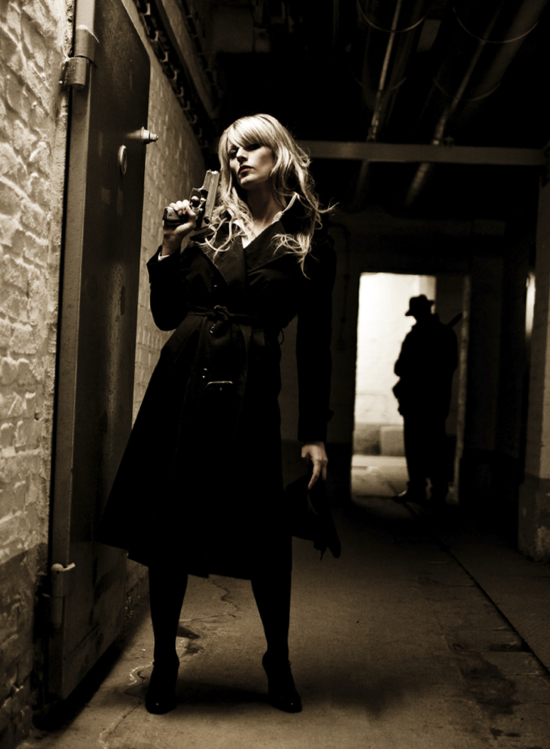 What’s in a genre? More precisely, what’s the difference between the genres in the title? Are there any hard lines between them? What’s in a genre? More precisely, what’s the difference between the genres in the title? Are there any hard lines between them?
And what do we, as readers, get from each of them?
Action stories feature a lot of movement-heavy exciting scenes including but not limited to fights, shootouts, car chases, foot chases, explosions, fast flying helicopters – you name it – and more than one. Sometimes they feature one character, but more often an ensemble each with different functions or expertise.
However, these stories and films tend to have simple, obvious or sometimes hardly any plot, even huge plot holes and lack of continuity. The fun is in the fast and furious pace and in films, heart-stopping CGI sequences such as Mission Impossible.
Adventure stories are essentially about an exciting experience or mission/quest at the centre of the tale and sometimes have old-fashioned tone as H. Rider Haggard’s classic stories, spy stories such as by John Buchan, Ian Fleming and Eric Ambler, or an epic one as in space opera such as the Vatta’s War series by Elizabeth Moon.
Such stories often feature exotic locales and several puzzles/riddles/challenges that may or may not be physical. A good supporting team of trusty locals, comrades, experts and ‘elder statesperson’/guru is in the mix. The ‘good guys’ usually win, although there may be bitter loss or sacrifice along the way. Confusion arises these days with the label if books are called ‘adventure’ when they may only be a day out or a family road trip; these are really dramas, I’d say.

Action-adventure is a hybrid in which both action scenes and puzzling challenges are combined. Raiders of the Lost Ark is a good example of an action-adventure film since it contains both strong physical action scenes as well as a defined quest. Raiders includes fights, stunts and shootouts along with period settings, travel, historical puzzles and death-defying challenges.
Suspense stories have danger but not necessarily action. Much of the danger and tension come from the unknown or apprehension of potential danger. The protagonist acts in a state of excitement, misplaced hope, anxiety and/or uncertainty about what is about to happen. Readers often know something the characters don’t and hold their breath as the characters’ dread increases. Should a vulnerable, young character venture upstairs to find out what’s making those noises in the attic? We know they shouldn’t and we have a pretty good idea why they shouldn’t. We may possibly know EXACTLY what’s waiting for them up there…
Mysteries have, er, mysteries, a puzzle or sometimes a seemingly impossible quandary to understand or explain. It often relates to a crime like murder, and includes hidden elements, a cover-up and a sleuth/detective, and the answer is revealed only at the end. Agatha Christie specialised in this. Traditional authors like Raymond Chandler and Dashiell Hammett mixed mystery and suspense. The best mystery stories often explore people’s unique capacity for deceit—especially self-deceit. This is usually considered the most cerebral (and least violent) of the crime/mystery/thriller genres.
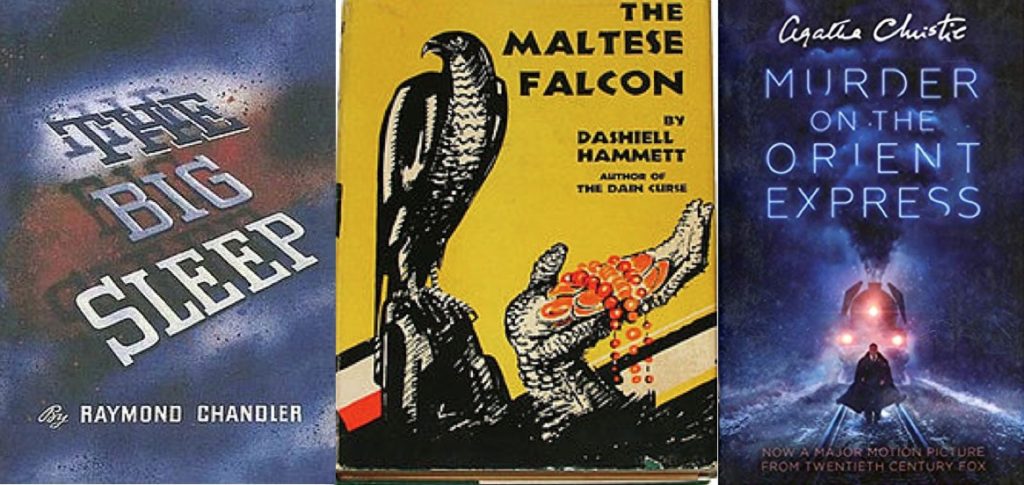
Thriller stories are more nuanced than action stories and build more on tension and complexity of plot. Traditionally, the plot appears more important than the characters, but the best thriller writers develop both equally fully. Often, something bad happens to the protagonist externally, e.g.they are mistaken for a criminal, kidnapped, attacked by ‘persons unknown’ or are betrayed by the authorities or seeming colleagues – anything to ramp up the tension. Equally often the only solution is for the protagonist to act alone at great personal risk or in certain danger. Internal conflict, illness and psychological pressure and self-doubt add to the tension.
Thrillers use plot twists and devices to create excitement, while action and adventure stories use their action scenes and risky situations. In crime thrillers, the central characters are involved in crime, either in its investigation, as the perpetrator.
According to International Thriller Writers (and who am I to argue?), a thriller is characterized by “the sudden rush of emotions, the excitement, sense of suspense, apprehension, and exhilaration that drive the narrative, sometimes subtly with peaks and lulls, sometimes at a constant, breakneck pace.”
A few types of thrillers and some examples
Classics: Heart of Darkness by Joseph Conrad and The Count of Monte Cristo, both strip away civilisation and reveal cruelty of people to others, the first more of a psychological thriller, the second a story of vengeance and redemption.
Legal thrillers: Anything by John Grisham who has made the sub-genre his own.
Intellectual or pseudo-intellectual thrillers: The Da Vinci Code by Dan Brown is a prime example. Using a professor as protagonist gives an essence of credibility (but not much), but it does attract readers by delving into a mystery most people would love to know about, and moves very fast.
Epic/high-concept thrillers: These deal with terrorism, trained assassins or space opera. A ‘pull out all the stops’, ‘save the world’ genre. Tom Clancy’s Executive Orders would be a good example of this.
Socio-political thrillers: Frederic Forsyth’s The Day of the Jackal is one of my favourites!

Espionage thrillers: Le Carré is, of course, the master here with The Spy Who Came in from the Cold as an excellent place to start. Mick Herron is another terrific spy story writer, with anarchic insight into his cynical protagonist Jackson Lamb and team of competent incompetents of Slow Horses.
Techno-thrillers: Tom Clancy’s The Hunt for Red October and Clear and Present Danger. Both are fast-paced and with sympathetic and complex main characters.
Historical: My favourite is Lindsey Davis’s Roman detective Falco and the spin-off series featuring Flavia Albia. Ellis Peters’ 12th century Brother Cadfael series is a a well-loved classic.
What ifs: Fatherland by Robert Harris remains my favourite alternative history, although there are many more here. Oh, and there’s the Roma Nova thriller series with stories set in a Roman society in the 20th and 21st centuries full of betrayal, rebellion and ‘tough gals’… 😉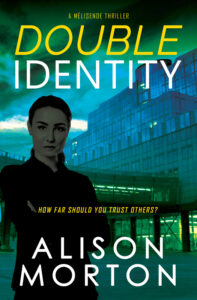
And my own new contemporary thriller (if I may mention it 🙂 ) Double Identity, a contemporary conspiracy thriller with a Franco-British ex-special forces solder, Mélisende, a dead body and grumpy British cop, McCracken.
Alison Morton is the author of Roma Nova thrillers – INCEPTIO, CARINA (novella), PERFIDITAS, SUCCESSIO, AURELIA, NEXUS (novella), INSURRECTIO and RETALIO, and ROMA NOVA EXTRA, a collection of short stories. Audiobooks are available for four of the series.Double Identity, a contemporary conspiracy, starts a new series of thrillers. JULIA PRIMA, a new Roma Nova story set in the late 4th century, is now out.
Find out more about Roma Nova, its origins, stories and heroines and taste world the latest contemporary thriller Double Identity… Download ‘Welcome to Alison Morton’s Thriller Worlds’, a FREE eBook, as a thank you gift when you sign up to Alison’s monthly email update. You’ll also be among the first to know about news and book progress before everybody else, and take part in giveaways.
If you enjoyed this post, do share it with your friends!Like this:Like Loading...
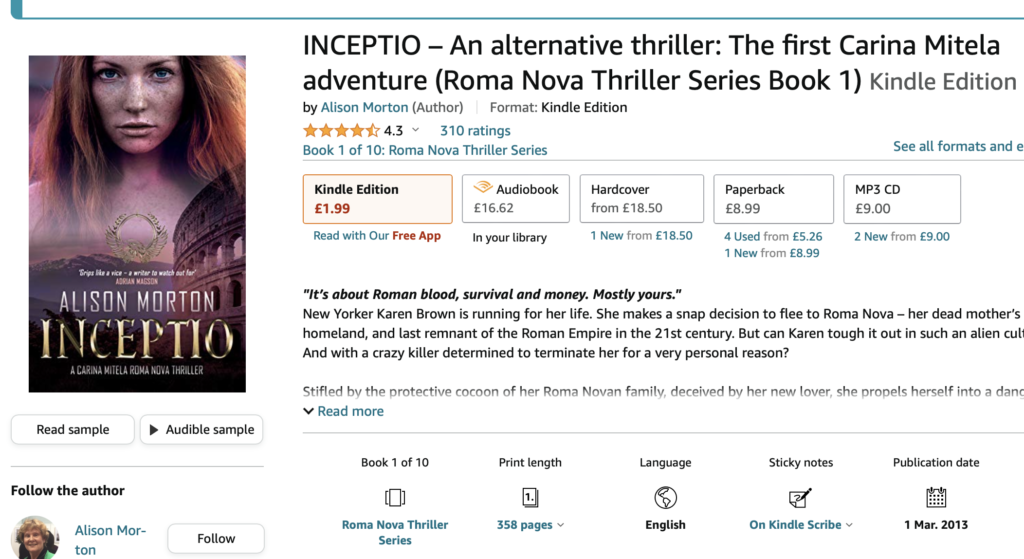
Recognition is something most humans crave, admitted or not. Sometimes it’s an (un)acknowledged motivator for writing and publishing a book. People write for many reasons, but little beats the tingle of seeing your name on the front of a work you’ve created. Recognition takes many forms, such as a mention in the mass media, praise from your peers, congratulations from your family and friends and importantly, reaction from the consumers of your work, the readers, in the form of reviews.
But once they put your book down, over 95% of readers pass on to the next one in their ‘to be read’ pile. That’s fair enough; they’ve paid their money and read your book. The ‘contract’ is completed. If they post a review, they have made an additional, and generous, gift of their time.
Although reviews appear in magazines (My third book, SUCCESSIO, reached the dizzy heights of Editor’s Pick in The Bookseller, my latest JULIA PRIMA gained an Editors’ Choice accolade in the quarterly review of the Historical Novel Society), most will be online at book review sites or retailer sites. Both are valuable, but like it or not, Amazon reviews are the ones most often quoted in any numbers game.
The first ten reviews are reasonably easy to acquire, the next ten harder. The climb from 20 to 50 is the steepest and most arduous. It took three years for INCEPTIO to gain 81 reviews on Amazon UK (average 4.5 stars), 53 on Amazon US (average 4.3 stars). Now those figures in 2023 are 311 on Amazon UK (average 4.3 stars) and 299 on Amazon US (average 4.2 stars).
Yes, it can be a slow burn…
Why do you want reviews?
Is it purely to trigger Amazon’s algorithm and sell more books? Is it to take part in a promotion with an entry requirement of X number of reviews? If you are indie, do you wish to attract an agent or publisher for some of your rights? Is it to show yourself and others that you have ‘made it’ as a writer? All, some or none of these? Whatever your goals, pursuing reviews will eat into your writing time and can be a slow process especially after a sudden initial rush around publication. So let’s unpick the process…
Phase 1 – Early preparation
Social media
You probably guessed this one! However, in talks I’ve given about social media at events over the years I’m still shocked to discover that some writers do not have a website, let alone blog, Facebook, Twitter or InstaGram accounts, let alone TikTok, or were considering them only now they had books out. You need to begin much earlier.
Although I had no published book to promote, I started my first blogsite (https://alison-morton.com) in 2010 knowing it could be a considerable time before my first book, INCEPTIO, was published (which turned out to be March 2013). I charted my writing career, reported on news and conferences, shared rejections and decisions and accumulated a following. Ditto for Twitter and a Facebook author page. Whether you call them followers, a street team, loyal fans or a ‘barmy army’, these are likely to provide some of your first reviews, so you need to nurture them.
A word about ‘content marketing’
This is a fancy description for a softer form of marketing; giving followers excerpts, back story, tips, hints, insights, special offers, updates, etc. Occasionally you can write commercial posts with the ‘buy my book’ message and/or asking for a review, but 80% of your posts, whether on social media, your own blog or as a guest on somebody else’s, should be content marketing. In this way, followers will get to know you as a human being and be more sympathetic to buying your book and reviewing it.
Build up a mailing list
This is a resource you own; social media engines are not under your control. A mailing list, steadily grown, will be full of potential first readers and thus reviewers. You can offer a regular newsletter, a novella, short story or if you have several books, a free book when people sign up. How to grow and manage mailing lists is a full subject by itself, but at the very least make sure you have buttons on your site and social media pages which click through to a sign-up form.
Be a joiner
Whether a writers’ circle in your home town, a Facebook group or a genre society, join in and contribute. If other writers get to know you, they may recommend your book to their readers, tell you about promotion opportunities and be more relaxed about your review request.
Endorsements
Books with endorsements from famous authors are more credible than from an albeit talented unknown – a harsh truth. During my pre-pub years, I attended conferences, workshops and classes, participated in forums, went to writers’ meetings and parties. Apart from learning about writing craft and publishing industry, I was networking, building up contacts and becoming a known face. In this way, Adrian Magson became my mentor, broadcaster Sue Cook became a firm friend of Roma Nova and Simon Scarrow and Conn Iggulden (amongst others) endorsed my books.
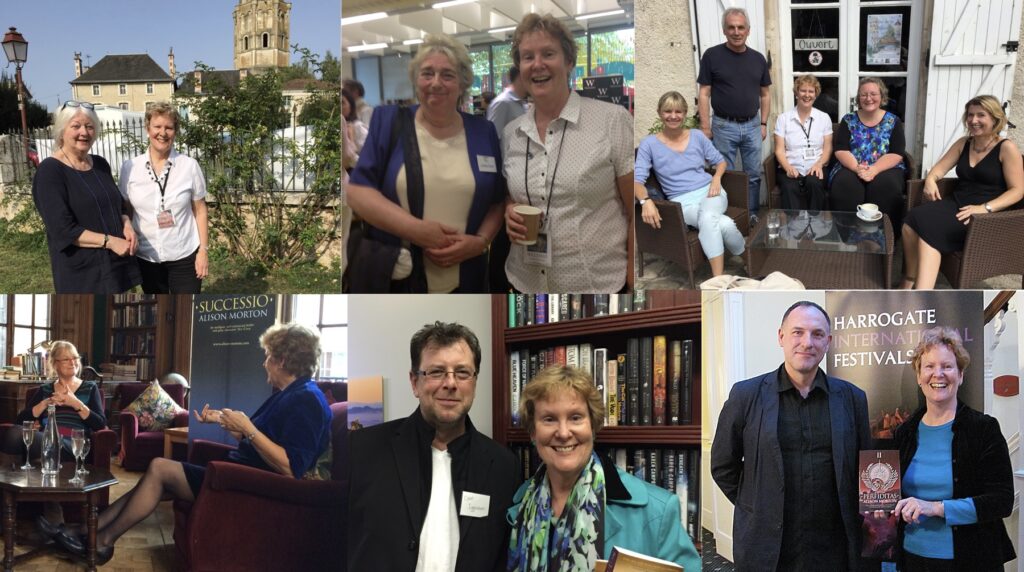
Phase 2 – Pre-publication and publication period
Production phase
The ‘buy – read – review’ cycle starts months before publication with the development of an enticing ‘hook’ for the reverse of a print book and online retailer product pages. A tactful request along the lines of “if you enjoyed this book, I’d really appreciate it if you would leave a review” can be inserted at the end of an eBook at this production stage with a link to online stores. Traditionally published authors have little control over production, but it never hurts to point this out to the publisher! Indie authors have more freedom here.
Pre-publication
Now you have built up a group of writing friends and contacts, you should be able to ask them six to eight weeks before publication to read an advance (free) copy of your book and, if possible, to put an honest review online on, or shortly after, publication day. Writers understand what you are asking. This is not unethical, but normal practice. And please accept refusal gracefully. Do not ask your mum or best friend who have never reviewed anything on an online site to post a 5-star rave review on publication day. It’s easily spotted and discredited.
Two weeks before publication, send out an email to your mailing list and offer free advance copies (usually a neat PDF file, or perhaps through a service like BookFunnel). You can’t make a review a condition of receiving a free advance copy, but you can strongly suggest it!
If you’re traditionally published, your publicist will contact magazines, radio, television, national newspapers ahead of publication to request an interview, review or mention. They will place your book on Netgalley where bloggers can download a no frills advance copy to review. The publicist may organise a physical tour or more likely a virtual blog tour, and they will have organised or at least supported a launch event. Independent authors, unless they hire their own publicist, will do this themselves.
Result: 10-15 reviews on Amazon/Goodreads and 5-10 from independent bloggers/printed magazines.
Post publication
All authors can claim their Amazon author page. In Amazon Author Central, upload a professional photo, a bio including website/blogsite URL. Check all your books including your latest are included. Add your blog feed, Twitter feed and any book trailers.
A good post-publication way to receive reviews is to approach book bloggers. You may not get in the national dailies, but you can search out the hundreds of blogs, including genre specialists, on the Internet. Comment on previous reviews on the sites you think most appropriate. When you pitch to bloggers, read their review policies, always address each request individually and be polite and brief. If there are no specific guidelines, include the following information:
- who you are
- what the book is about – a brief synopsis
- the thing that makes your book special
- the what/when/where of the book’s publication
- any awards, endorsements from extra special people and averages on the main retailer if it’s very good, e.g. 4.8 average on Amazon
- whether you can offer an e-book or a paperback
- how to get in contact with you
A 10-15% acceptance rate is very good. Good bloggers will also post their reviews on Amazon and Goodreads.
Tip: Keep a spreadsheet with contact name, site address, email address, date asked/pitched, date agreed, date drafted, date sent. And a final column for the URL for the review/guest post that resulted so you can repost it in the future.
Phase 3 – The long tail
The big publication push is over, perhaps it’s six months down the line. Hopefully you have 15-20 reviews by now, perhaps 25. This is very respectable. And equally hopefully, those reviews are spread over Amazon and Goodreads.
Blog interaction
The next stage is to maintain interest, spread visibility and hence be discovered by new readers. Comment on other people’s blogs, ask to write guest posts or answer Q&A interviews on these blogs and keep asking for reviews. Offering a free book, either eBook or print copy, as a reader giveaway is a good incentive for the blogger to accept your request. If blog readers don’t win your book in the giveaway, they may buy it anyway.
Back to social media
You may have done this already and I rather hope you have, but you should become active in social media groups relating to your book’s content and interact consistently. This is the modern word of mouth. Without being spammy you can sometimes introduce your book with comments such as ‘Oh, I discovered similar XYZ while I was researching [name of your book]’. I’ve sold many a copy like that and received reviews as a result.
Recruit a wider circle
Now is the time for your nearest and dearest, your work colleagues and loyal friends to read and review your book. Ask them if there is any way they can mention your book when they are on social media, in the lunch queue or even at the hairdressers’.
Look up authors in your genre and Google them to see where reviews of their books appeared. Contact those book bloggers as above. Repeat.
Goodreads review groups
Search Goodreads for genuine review groups. As with any social media, you’ll need to watch them for a while and you may have to wait several months. Once your book is scheduled, you may get a bump in online reviews. Of course, some group members are only out for a free book. You have to let this go and not be offended.
Hand selling and reviews
If you are selling your print books at an event, you could insert a note in at the back of each book suggesting to readers that if they enjoyed it, they might like to write a review.
An update on Amazon
Amazon changes all the time. It’s generally accepted that they add more weight to reviews from ‘verified purchases’ than to free advance copies and review copies. They have also introduced ‘ratings’ when consumers – readers in our case – can merely rate a book from one to five stars without writing a review.
Press/online articles
Writing an article in a field you know enhances your reputation and profile. As with book bloggers, pitch politely and highlight what you can offer the blog/magazine readers. If you are offered a column in a local newspaper or lifestyle magazine then grab the opportunity with all ten fingers and thumbs. If you are lucky enough to be approached by a journalist, respond like lightning. They may introduce you to the book review editor or you might get picked up for an interview with local radio.
Paid reviews
I’ve never paid for a review as I think that’s unethical. It’s also expensive. For the hundreds of dollars or pounds you could pay for such a review, you could run a number of paid promotions which will give you exposure to thousands of readers and potentially several reviews.
Organic reviews
These come naturally when you have done the hard work above. When you publish the next few books, readers already engaged with your work are more likely to buy your book and a higher percentage are likely to leave a review. Unfortunately, this is happening less and less often which is frustrating, but I leave a gentle reminder at the foot of my monthly newsletter and cross my fingers.
If it’s any consolation, I’m still chasing that first 50 for my newest book JULIA PRIMA which came out last August to very satisfactory reviews, even gaining an Editors’ Choice accolade from the Historical Novel Society. It’s a patience game…
In conclusion, gaining reviews is closely allied with marketing your book. A plan, hard work and patience are the key elements. Yes, you need to make an effort to bring your book to readers’ attention and it is becoming harder with so many books on the market, but don’t scrabble around doing more than you’re comfortable doing. Define the time in which you will carry out marketing activities and then finish when that time ends. The old saying ‘The best way to market books is to write the next one’ is very true. Which reminds me – time to write my words for today. 😉
Good luck!
Alison Morton is the author of Roma Nova thrillers – INCEPTIO, CARINA (novella), PERFIDITAS, SUCCESSIO, AURELIA, NEXUS (novella), INSURRECTIO and RETALIO, and ROMA NOVA EXTRA, a collection of short stories. Audiobooks are available for four of the series.Double Identity, a contemporary conspiracy, starts a new series of thrillers. JULIA PRIMA, a new Roma Nova story set in the late 4th century, is now out.
Find out more about Roma Nova, its origins, stories and heroines and taste world the latest contemporary thriller Double Identity… Download ‘Welcome to Alison Morton’s Thriller Worlds’, a FREE eBook, as a thank you gift when you sign up to Alison’s monthly email update. You’ll also be among the first to know about news and book progress before everybody else, and take part in giveaways.
If you enjoyed this post, do share it with your friends!Like this:Like Loading...
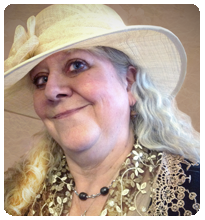 Writing friend Helen Hollick is no stranger to this blog, nor to publishing. This week, she’s celebrating not only her 70th birthday, but also her 30th year of publishing books. (And I thought I was doing well with my 10th year!) Writing friend Helen Hollick is no stranger to this blog, nor to publishing. This week, she’s celebrating not only her 70th birthday, but also her 30th year of publishing books. (And I thought I was doing well with my 10th year!)
First accepted for traditional publication in 1993, Helen became a USA Today Bestseller with her historical novel, The Forever Queen (titled A Hollow Crown in the UK) with the sequel, Harold the King (US: I Am The Chosen King) being novels that explore the events that led to the Battle of Hastings in 1066.
Her Pendragon’s Banner Trilogy is a fifth-century version of the Arthurian legend, and she writes a nautical adventure/fantasy series, The Sea Witch Voyages. She has also branched out into the quick read novella, ‘cosy mystery’ genre with her Jan Christopher Murder Mysteries, set in the 1970s, with the first in the series, A Mirror Murder incorporating her own, often hilarious, memories of working as a library assistant.
Her non-fiction books are Pirates: Truth and Tales and Life of A Smuggler. She lives with her family in an eighteenth-century farmhouse in North Devon and occasionally gets time to write…
Today, we’re looking at Helen’s Pendragon trilogy and asking THAT question:
King Arthur? Was he, perhaps, in Brittany and France? Over to Helen!
Thirty years ago, one week after my 40th birthday in April 1993, I was accepted by William Heinemann (now part of Random House UK) for the publication of my Arthurian Pendragon’s Banner Trilogy. To say I was excited is an understatement.
The trilogy has gone through various editions since then, under my own ‘indie’ steam when I obtained the rights back in 2006, a German translation and traditionally published in the USA/Canada. To celebrate the 30 years, I decided to re-issue my own copyright editions with new, beautiful covers, designed by www.avalongraphics.org, and to hold an online party – so welcome to the celebration!
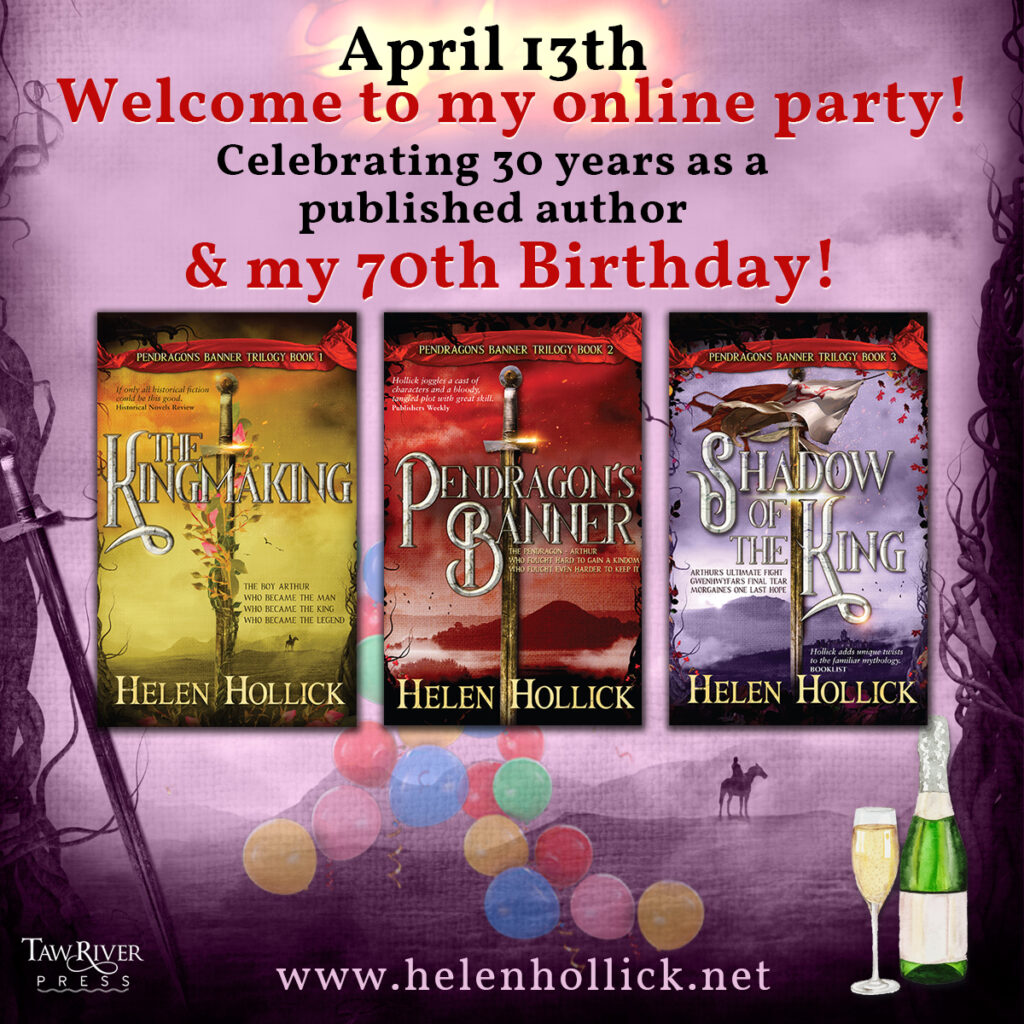
‘King’ Arthur is a different person to many different people, from a Medieval, Christian king to a small boy in a Disney cartoon. My Arthur is a ‘Dark Age’ battle-hardened warlord, his (fictional) existence is set in the Britain/England of the 450s-500s, a period of great upheaval, when ‘chivalry’ did not exist, bloody battles were fought and twenty-first century unacceptable behaviour was commonplace. ‘Then’ was a very different world to ‘now’.
Few historians are prepared to accept the dates and events listed in sources such as the Anglo-Saxon Chronicle as entirely accurate. Rather, these records represent a broad – and biased – sweep of events. There are very few undeniable facts for this muddled era of British history. We know a little of what happened, occasionally where, but not precisely when. Even the early written records disagree with each other where dates are concerned.
If dates cannot be agreed upon, the matter of Arthur himself is even more debatable! There is much passion and heated disagreement concerning the various theories of his how, when, and where. Indeed, it has not even been established whether he ever existed outside the realm of the imagination. (He probably didn’t.)

In my trilogy, I set out to write a ‘what might have happened’ story, stripped of the post-Norman Conquest chivalric tales of knights in armour, the Holy Grail, round table, Lancelot – and even Merlin. Instead, I tried to make sense of the chaos that the withdrawal of Rome from Britain left behind, and the steady immigration of the Germanic tribes of the Angles, Saxons and Jutes who took advantage of that void of chaos. I was determined to write something different to the Medieval stories – what, perhaps, could have been behind the Arthurian legend?
The late Geoffrey Ashe’s The Discovery of King Arthur put the idea of a campaign in Gaul (Brittany and France) into my mind. Not everyone agreed with his suggestion, but I am grateful for the inspiration.
Book 3, Shadow of the King follows his theory, in which he suggested Arthur could have been Riothamus, a war leader who did exist. We have several references to prove that fact, in particular, a letter to him from Sidonius Apollinaris, Bishop of Clermont Ferrand. Riothamus was King of the Britons, but does this mean the British or the Bretons, or both? Riothamus, like so many names of this period was a title meaning something like Supreme Leader. Today, the title Prince of Wales refers to Prince William, but could equally mean the notorious Prince Regent or the Welsh Llewelyn ap Gryffydd.
Was this overseas campaign the base for the later quest for the Holy Grail? For the story of ‘Arthur’ leaving his realm to go off somewhere, not to return for many years? I made full use of Ashe’s theory – including a wonderful three-weeks exploring Brittany and parts of France, using the places I visited as ideal scenes: Vézelay, Carnac…
 Vézelay It is fact that a great battle at Deols (Vicus Dolensis) was fought between ‘the British’ and the Goths. The British were slaughtered. Riothamus fled into Burgundy… and was never heard of again. Was he the man who then became the Arthur of legend?
Mr Ashe’s theory has been disputed, but I think it is as plausible as any alternative suggestions, and there is no evidence to prove Riothamus was not Arthur! Perhaps he was, perhaps he wasn’t. It is up to the individual to decide.
 Panorama of Avalon (Wikipedia CC Commons (Patrick 89)) Another place I visited, however, does give pause for thought: Avallon, a quaint, old town (worth a visit) in what was Burgundy, is a real place…
If Arthur truly lived, and if he was Riothamus?
Who knows?
Thank you, Helen, for a new perspective on King Arthur, probably a more realistic one. And I LOVE the possible connection to France!
_________________
Helen’s new, self-published, editions with beautiful covers designed by Cathy Helms of www.avalongraphics.org are, alas, only available outside of USA and Canada, where the same books are published by Sourcebooks Inc.
Where can you buy them?
THE PENDRAGON’s BANNER TRILOGY
New Editions available worldwide except USA/Canada: https://mybook.to/KingArthurTrilogy
US trilogy: https://www.amazon.com/gp/product/B074C38TXN
Canada trilogy:https://www.amazon.ca/gp/product/B074C38TXN
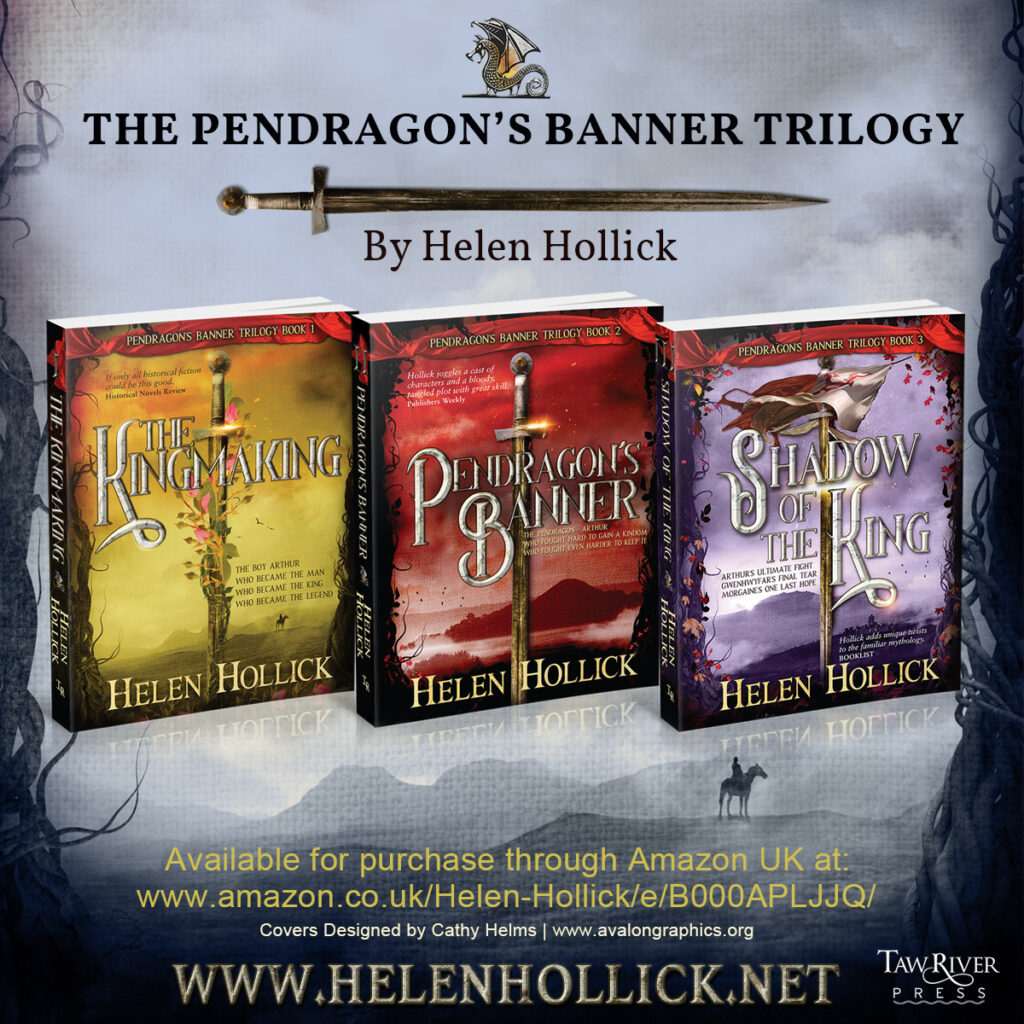
Connect with Helen
Website: https://helenhollick.net
All Helen’s books are available on Amazon: https://viewauthor.at/HelenHollick
Subscribe to Helen’s Newsletter: https://tinyletter.com/HelenHollick
Her Blog: https://ofhistoryandkings.blogspot.com/
Facebook: https://www.facebook.com/helen.hollick
Twitter: @HelenHollick https://twitter.com/HelenHollick
Follow Helen’s Celebration Tour https://www.helenhollick.net/
Alison Morton is the author of Roma Nova thrillers – INCEPTIO, CARINA (novella), PERFIDITAS, SUCCESSIO, AURELIA, NEXUS (novella), INSURRECTIO and RETALIO, and ROMA NOVA EXTRA, a collection of short stories. Audiobooks are available for four of the series.Double Identity, a contemporary conspiracy, starts a new series of thrillers. JULIA PRIMA, a new Roma Nova story set in the late 4th century, is now out.
Find out more about Roma Nova, its origins, stories and heroines and taste world the latest contemporary thriller Double Identity… Download ‘Welcome to Alison Morton’s Thriller Worlds’, a FREE eBook, as a thank you gift when you sign up to Alison’s monthly email update. You’ll also be among the first to know about news and book progress before everybody else, and take part in giveaways.
If you enjoyed this post, do share it with your friends!Like this:Like Loading...

The dream version
I spring out of bed at 6 a.m., go for a two-kilometre run, return for healthy breakfast of muesli and fruit, no caffeine. Shower, then ten minutes of calming yoga. Dress in relaxing linen separates and drift to my desk ready to start creating at 8 a.m.
The Muse visits and I type out a thousand perfect words before lunch which is a low calorie cheese and salad bowl with a healthy glass of carrot juice. I relax for twenty minutes on the terrace breathing in the fresh country air and gathering my thoughts for the next scene of my wonderful book. Two agents email me, fighting to offer me a five book deal and 100,000€ advance. I decide to leave it a week before I reply.
I return to my immaculately tidy desk and spend an hour reading a research book uninterrupted except by the blackbird chirruping outside my window. After another perfect two thousand words, I stop at 7pm and drink a modest glass of wine in the evening warmth. I go to bed at 10 pm for an uninterrupted night of deep sleep, content that the Muse will visit me again with the plot for the next book.
The real version
 Aaaargh|! Wake up. 6:30 am. Damn, I forgot to finish that guest post for today. So many notes I don’t know where to start. What will they expect? Will it be enough? Tea. Lean over and click the kettle on. Determine to read another half-hour’s worth of ‘duty book’ I said I would review. Maybe it’s me, but I just can’t get into it. Despite the beautiful writing, I have no sympathy for any of the characters – self-indulgent flaneurs, stereotypes or cardboard cut-outs. Pity – there’s a good story in there if it could be dug out of the dark pit it’s buried in.
Reach over and check social media on my iPhone. 100% more interesting. Oh, look a lovely RT from A Famous Person, lots of Likes for a photo of my garden. Spend half an hour interacting on Facebook re books, literary fiction, herbs, history, cats, Romans and weather, but see only three books sold overnight on Amazon. 😱
Tea drunk, I head for the shower. Scales or not? Damn. Despite two hours sweating in the garden yesterday, still the wrong side of the ‘You are fat’ figure according to all the health websites. Pull stomach in. No breakfast for me.
Coffee, downstairs to office. Pitiless ‘To do’ list – write own blog, finish guest posts, pitch others, order vitamins, send in tax return, phone doctor re back, check overnight misdemeanours on Facebook groups I admin, read emails, reply to Tweets, schedule a few more, read critique partner stuff, create new graphic to promote latest book, update website page about latest book, skim words of wisdom from other bloggers and so on.
Have mopped floor, emptied dishwasher, answered emails, written this blog post. Can I please have an hour to write my WIP now? Look at my desk strewn with papers – marketing plans, advert analyses, scribbled notes both illegible and unintelligible as I wrote them at 3 a.m. Look through email inbox before lunch. Where is all this spammy stuff coming from?
Lunch. We live in France. ‘Le déjeuner’ is sacrosanct, but only an hour at Château Morton.
Close all social media. Time to engage with the writing process. Ha! My first characters had been running around in my head for years so they were fully formed when I started to write the stories. Of course, I’ve been adding others over the years, so I must check how they’re interacting with the old stagers. Cue spreadsheet with ages and major events.
I have a vague outline of the plot; I know where it has to end, but the detail evolves as I tap on the keyboard. The characters’ quirks and interactions push the story along. Sometimes, they try to stage a coup and take over the show. Excuse me! Who is writing this book? After an hour of negotiation we agree on a compromise and I nudge them back into the story, promising death, agony or separation from their beloved if they don’t behave.
 Ah! Tea… After an hour of this bickering, I go for a tea break and decide I’ll do something calming like marketing. I used to be hot at this stuff, but everything has changed as it does in the book world, so now we’re into Amazon ads, BookBub deals and most ghastly of all, Facebook ads. At 6pm, I give up and go for a large glass of wine and a small supper.
Watch the news at eight, something vaguely history related on BBC4 (via satellite) or an episode of Star Trek or equivalent. Fall into bed at 11pm, read. Lights out at midnight.
Rinse and repeat.
Which of these does your day resemble? I have a fair idea of which I would bet on…
Alison Morton is the author of Roma Nova thrillers – INCEPTIO, CARINA (novella), PERFIDITAS, SUCCESSIO, AURELIA, NEXUS (novella), INSURRECTIO and RETALIO, and ROMA NOVA EXTRA, a collection of short stories. Audiobooks are available for four of the series.Double Identity, a contemporary conspiracy, starts a new series of thrillers. JULIA PRIMA, a new Roma Nova story set in the late 4th century, is now out.
Find out more about Roma Nova, its origins, stories and heroines and taste world the latest contemporary thriller Double Identity… Download ‘Welcome to Alison Morton’s Thriller Worlds’, a FREE eBook, as a thank you gift when you sign up to Alison’s monthly email update. You’ll also be among the first to know about news and book progress before everybody else, and take part in giveaways.
If you enjoyed this post, do share it with your friends!Like this:Like Loading...
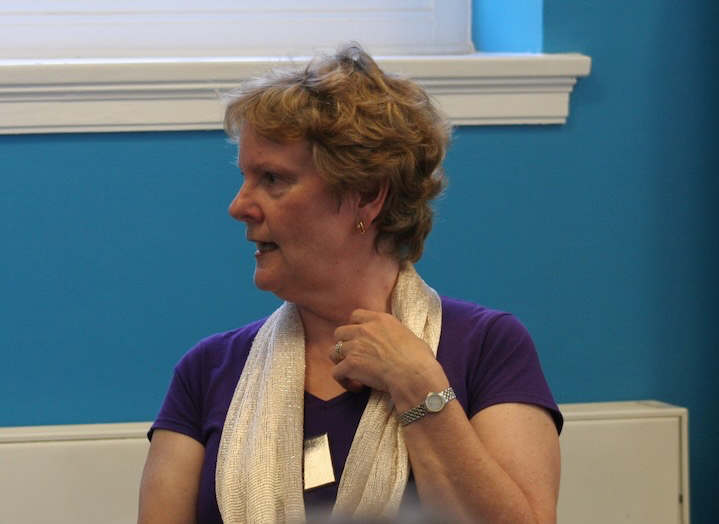 Surely not? Picture me at a writers’ conference, a good two years before I published INCEPTIO, the first of the Roma Nova thrillers, in 2013. Full of enthusiasm, going to every class, talk, workshop and seminar followed by long nights in the bar discussing structure, characters, pitfalls, agents, heroes, failures and successes, I was exhausted by Sunday morning.
I shuffled up to the coffee machine, chose two slugs of espresso in one mug, dolloped a load of fruit in a bowl in hope of regaining lost vitamins and made my way to a table with a single figure. She was a multi-published author, somebody I respected, no, revered. When she invited me to sit, I felt honoured. But no way was I up to sparkling conversation.
As I munched on my fruit, the Experienced Author kindly asked me how things were going. Before I could answer, my rather more abstemious and thus more energetic friend plonked herself down at the table. She said we’d enjoyed the workshop on character, but was rather disturbed by the speaker saying it was easy to forget who was who in earlier books she’d written. That woke me up.
‘Surely, you wouldn’t forget one of your beautiful creations,’ I said, my fruit consumed.
‘Well, it does happen,’ replied Experienced Author.
We two newbies stared at her, our mouths not open, but silent. ‘After fifteen books, in three different genres, I can’t remember each character. They fall in love, struggle with tragedy, rebuild their fortunes, find happiness, and then you send them off to be published and as in life, you turn to new ones.’
Appalled at such cynicism, my friend and I exchanged what Georgette Heyer would have called ‘a speaking look’. Both of us were rock solid in the confident knowledge that this would never happen to either of us. Our profound knowledge and deep love of all our characters, principal and secondary, ensured they were graven on our souls. We politely finished our breakfast and took no notice of the little smile on the Experienced Author’s lips.
I slaved over my first book, INCEPTIO, going through manuscript assessments, beta readers, mentor and professional editors, and generally whipping it into shape for publication. Two years on from that breakfast chat with the Experienced Author I was even more involved with my characters, especially the two leads, Carina and Conrad. I could not only see them, I dreamed about them. I spoke about them at the launch of INCEPTIO and even infected my friends with them. Well, they queued up to buy the book in droves that night.
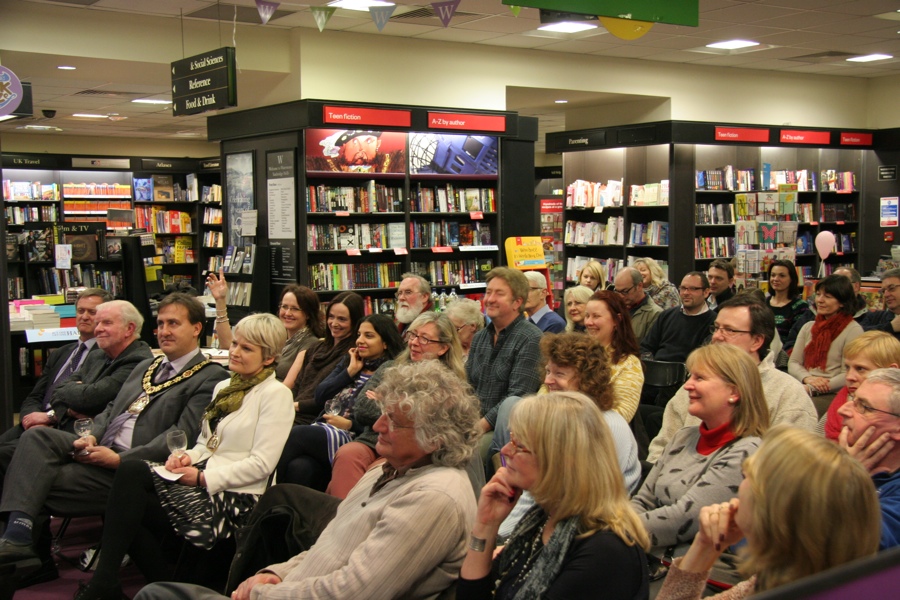
The following October, the second book I wrote in the Roma Nova series, PERFIDITAS, launched and if possible, my knowledge increased. I could do Mastermind on Carina and Conrad and probably the same on the elder stateswoman Aurelia who was then a secondary character. By the third book, SUCCESSIO, a year later, I was spreading the dramatis personae to include the next generation, so had to check the odd thing here and there.
With AURELIA, I took the main secondary character of the first three books back to her young womanhood in the late 1960s. Soon I was immersed in the pre-internet, rather sexist world. Carina and Conrad of the 21st century were fading as I plunged into one of the darkest periods of Roma Nova’s history with a tale of crime and derring-do.
Then a reader asked me a question about a character in PERFIDITAS and I said ‘Who?’ She reminded me in a cold voice about who they were and added that the character was her favourite. Oh, crap! I bluffed through it, but that breakfast meeting in 2011 came immediately to mind. Five years on, I bowed to that Experienced Author in true humility.
The (humbling) remedy
I re-read the first three Roma Nova thrillers. It was the least I could do. Actually, I really enjoyed reconnecting with Carina, Conrad and all the other characters. Did I really write these thrillers? By the time I came to write INSURRECTIO, RETALIO and the two novellas, CARINA and NEXUS, I knew what I had to do. Series fans would never forgive me if I messed up on the continuity. As a reader, this kind of error shows me the writer doesn’t take a professional approach to their work.

The lesson learnt
When I went back to the Roma Nova origin story and was drafting JULIA PRIMA, the first foundation story set in the late fourth century, I re-read the whole series to date – six full-length novels, two novellas and a book of short stories. Confession time: i actually made notes of the text and context of whenever those distant ancestors were mentioned.
Spreadsheets for the characters, especially their ages, their relationships, events and pivotal decisions litter my Roma Nova documents folder on my computer. I have a time line grid (index) for each book so I have an easy reference for the actions and decisions in each book. Although mistakes happen and typos creep in despite the sets of eyes on the text, I know as a writer that I owe it to my readers to craft the books with care.
More than anything, I have abandoned hubris and now have a little more humility.
Alison Morton is the author of Roma Nova thrillers – INCEPTIO, CARINA (novella), PERFIDITAS, SUCCESSIO, AURELIA, NEXUS (novella), INSURRECTIO and RETALIO, and ROMA NOVA EXTRA, a collection of short stories. Audiobooks are available for four of the series. Double Identity, a contemporary conspiracy, starts a new series of thrillers. JULIA PRIMA, Roma Nova story set in the late 4th century, starts the Foundation stories. The sequel, EXSILIUM, is now out.
Download ‘Welcome to Alison Morton’s Thriller Worlds’, a FREE eBook, as a thank you gift when you sign up to Alison’s monthly email update. You’ll also be among the first to know about news and book progress before everybody else, and take part in giveaways.
If you enjoyed this post, do share it with your friends!Like this:Like Loading...
|
Subscribe to Blog via Email
Join 368 other subscribers.
Categories
Archive
|
 What’s in a genre? More precisely, what’s the difference between the genres in the title? Are there any hard lines between them?
What’s in a genre? More precisely, what’s the difference between the genres in the title? Are there any hard lines between them?



























